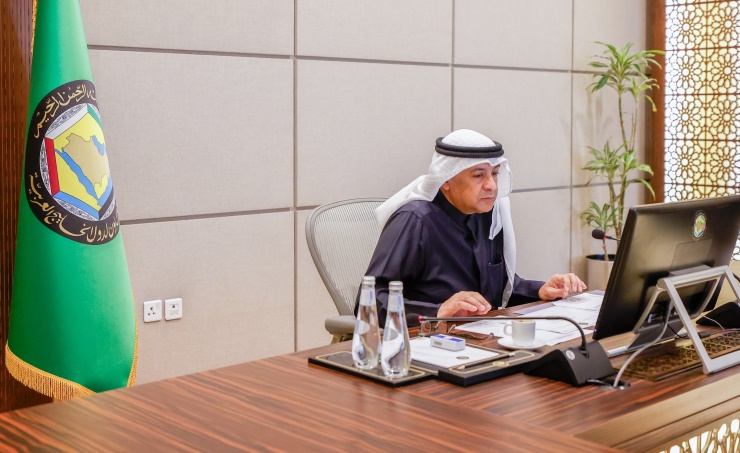Riyadh, Saudi Arabia–Jasem Mohamed Albudaiwi, Secretary General of the Gulf Cooperation Council (GCC), held a virtual meeting with ministers from the region to discuss a strategy for food security in the Middle East.
Ministers responsible for agriculture and food security from the GCC countries attended the meeting.
The meeting discussed the future strategy for food security, and a specialised team from the GCC countries was formed to draft this strategy.
The participant in the extraordinary virtual meeting of the Agricultural and Food Security Committee of the GCC countries met under the chairmanship of Abdullah bin Hamad bin Abdullah Al Attiyah, Qatari Minister of Municipality and chairman of the current session.
Albudaiwi affirmed that food security in the GCC countries receives great attention from the leaders of the GCC countries, and is closely monitored by the relevant ministers in the member states.
The secretary general concluded his statement by affirming the importance of this meeting as a fundamental basis upon which the food security system will be built.
He also highlighted the significance of involving all sectors of Gulf society, including the government, private sector, and civil society, in order to tailor the desired strategy.
Countries around the world are striving hard to ensure food security for their people through methods affordable and suitable to their food availability and ability to produce food.
The GCC countries realized the importance of food security after the World Food summit in 1974. These countries having realized the twin problems of increasing population and their inability to produce food on their own, have taken several steps.
The GCC countries have invested in agricultural lands in countries like Sudan, Ethiopia, India and China. They have signed bilateral agreements with a few countries, mainly India, China and the US for supply of food grains. They provide food at subsidized prices to their people.
The population of GCC countries was 46.8 million in 2013 and is estimated to reach 50.3 million in 2025. GCC currently imports 80%-90% of its food requirements. The increasing population will add to the pressure on food imports.
Hence, the GCC governments are keen to ensure that food prices are stable and affordable to all people. The key aspect of food security in GCC countries will be to find viable options to ensure consistent food supply through investments abroad, assured imports and developing their storage facilities to handle supply shocks apart from focusing on domestic agriculture.








